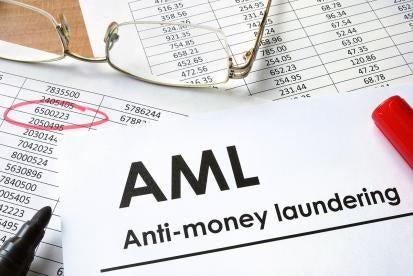On February 13, the US Department of the Treasury’s Financial Crimes Enforcement Network (FinCEN) proposed to expand anti-money laundering (AML) and countering the financing of terrorism (CFT) program requirements to cover Securities and Exchange Commission (SEC) registered investment advisers (RIAs) and SEC exempt reporting advisers (ERAs).
Background: A FinCEN Goal 20 Years in the Making
This proposal is not the first time FinCEN has attempted to bring registered investment advisers within the scope of its AML rules. FinCEN proposed such rules in 2003 (withdrawn in 2008) and again in 2015. FinCEN, however, appears poised to adopt its 2024 proposed rule (following the notice/comment period). Notably, FinCEN goes to great lengths to justify the expansion of AML rules to investment advisers, analyzing how the investment adviser industry has evolved since 2015 and often citing a risk assessment by the US Treasury Department (demonstrating, for example, that the lack of comprehensive and standardized AML and CFT measures for investment advisers created regulatory gaps that illegitimate investors exploited).
Core Requirements
The proposed rule would require that RIAs and ERAs:
- Adopt and implement a written AML/CFT program (AML Program), approved by its board of directors or person(s) that serve a similar function, that is risk-based and reasonably designed to prevent the investment adviser from being used for money laundering, terrorist financing or other illicit financial activities;
- As part of the AML program, at a minimum, to:
- Establish and implement policies, procedures and internal controls reasonably designed to prevent the adviser from being used for money laundering and otherwise comply with Bank Secrecy Act (BSA) requirements;
- Provide for independent testing for compliance;
- Designate a person(s) responsible for implementing and monitoring operations and internal controls;
- Provide ongoing training for appropriate persons; and
- Implement appropriate risk-based procedures for conducting ongoing customer due diligence.
- File suspicious activity reports (SARs) (involving amounts of $5,000 or more);
- File currency transaction reports (above $10,000 in currency in any one business day) and maintain certain records relating to transmittal of funds ($3,000 or more).
Scoping Considerations
- The proposed rule would include certain investment advisers (RIAs and ERAs) in the definition of “financial institution” under the Bank Secrecy Act and thus subject to AML requirements (as summarized above);
- State-registered advisers are not covered by the proposed rule;
- The proposed rule does not require that an adviser's AML Program cover advisory activities with respect to mutual funds (which are already “financial institutions” under the BSA and subject to AML requirements); and
- FinCEN has not proposed to include a customer identification program (CIP) requirement, nor has it proposed to require reporting of beneficial owner information for investor entities. FinCEN stated that it anticipates addressing CIP via a future joint rulemaking with the SEC and addressing the collection of beneficial ownership information in a subsequent rulemaking.
Final Thoughts
ERAs, in particular, have not previously been contemplated as in scope for specific AML compliance obligations of this nature and typically are subject to far fewer requirements applicable to SEC RIAs. Accordingly, ERAs (and RIAs) should start to evaluate their business models, the types of advisory activities they provide and associated AML-related risks and vulnerabilities. In addition, investment advisers will need to develop risk-based procedures to monitor for SAR-triggering events.
FinCEN seeks broad public comment, including, among other topics, how a final rule should address subadvisory agreements and other services that do not involve management of client assets, and implications arising from the use of third-party administrators. The comment period closes on April 15, 2024, and covered investment advisers would be required to comply with the rule within 12 months from the final rule's effective date.





 i
i


